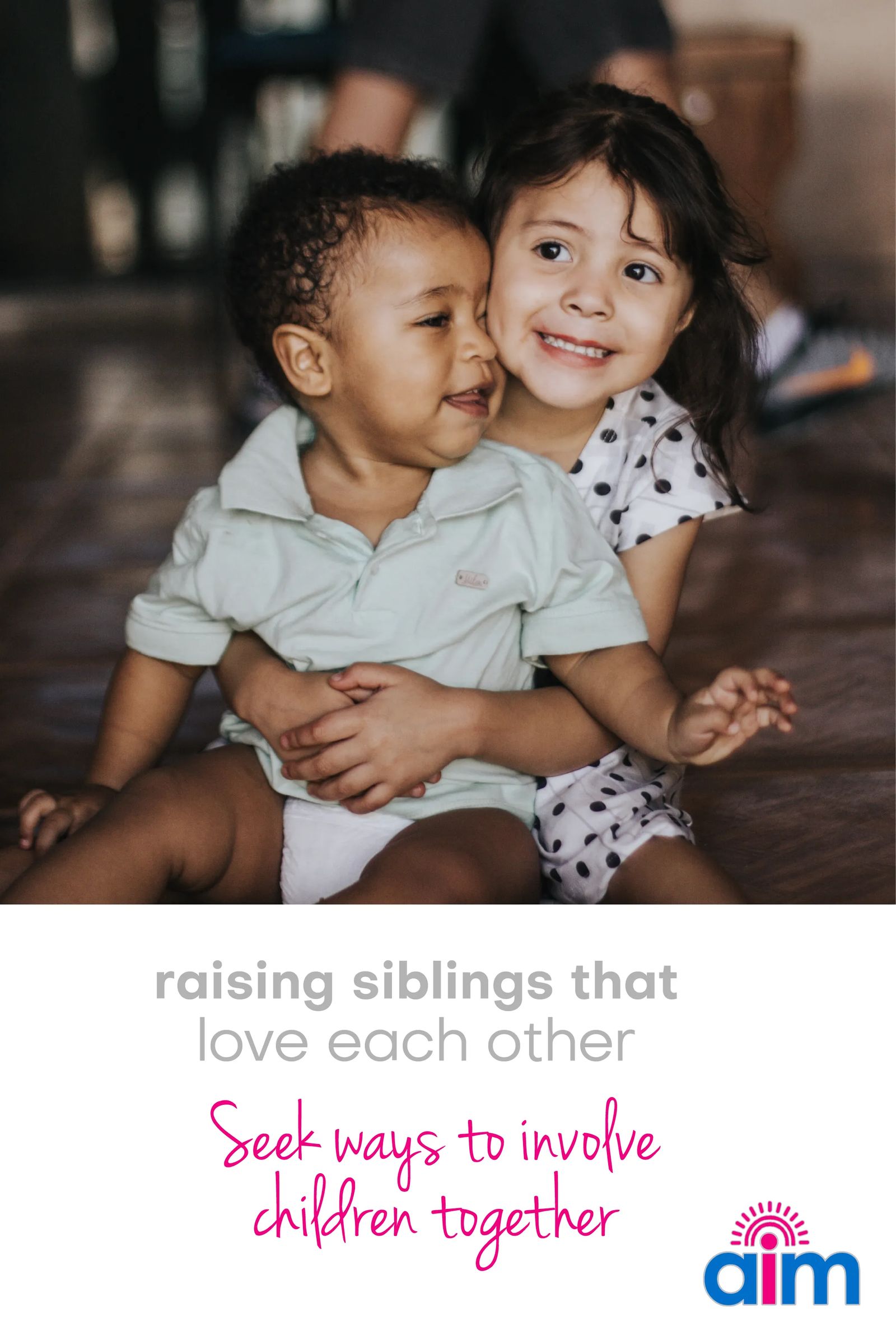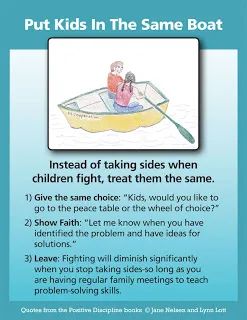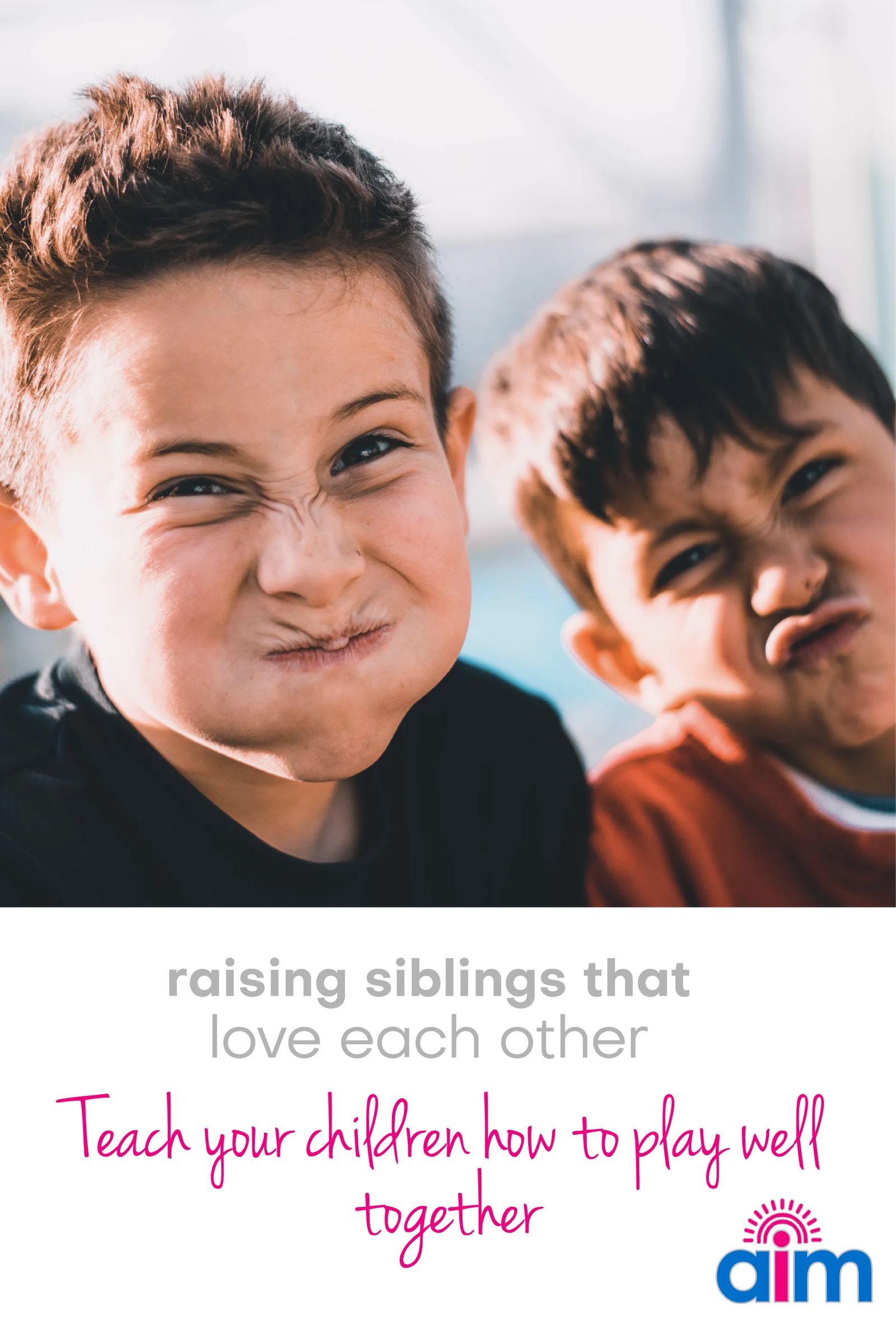Raising Siblings that Love Each Other

As parents, we want our children to have a loving and caring relationship with their siblings. We hope our children will form friendships with one another that will get them through the rocky road of life. However, in the early years it can feel like all they do is fight for your attention and over toys. Here are 4 keys to parenting young siblings in a way that will foster a more loving relationship between them.
1. Don't Compare. Our children are all special and unique in different ways. However, sometimes those differences can make them seem "easier" or "more difficult" for us, as parents or caregivers. It's often tied to differences or similarities in our child's temperament. Temperaments are personality traits that are fairly ingrained (not just present when the child is hungry or tired.) Researchers observing young children generally categorize children in 1 of 3 categories: easy/flexible, active/feisty, or slow to warm/cautious. You can read more about these temperaments here.
Often it is most challenging when your child’s temperament is very different from your own. For example, as an outgoing person who loves to jump into new situations, it is most challenging for me to be supportive of my "slow to warm" older child. And since his younger sister has my same temperament, it can be so tempting to want to say, "why can't you be more like your sister?! She doesn't seem to need to cling to my leg at music class." As you read those words, I imagine it's not hard to picture how that would make my son feel shameful when he is having a very real struggle that needs emotional support - not criticism. It also sets him up to resent his sister for being more "liked" in this moment, and he might extrapolate that she is more liked in general and understandably be likely to have negative feelings toward his sister. Unfortunately, with his immature social-emotional skills (he is only a 4-year-old after all!), he is likely to express his hurt feelings through aggression or other negative behaviors toward his sister. You can see the downhill road ahead if you follow this path, right?

2. Seek ways to involve children together, so they can feel helpful rather than "left out".
I started this from the moment my son met his younger sister at the hospital. I selected a stuffed bear with him, to give to the baby to welcome her to our family. When he handed her the bear, he had such pride on his face. He was empowered and we spent a lot of time that first year highlighting how lucky this baby was to have such an amazing brother. You can read more about that here. Here are a few other examples:
- When I want to take my daughter to the park in a wagon, I offer my older child the chance to pull the wagon. He loves to feel helpful, so this often takes off the edge of any jealousy toward sister riding in the wagon. (Of course, he is welcome to ride in the wagon too!)
- When it's time to put the younger child to sleep for her nap, I know my older son feels some jealousy about the one-on-one attention she is getting. So I ask my son if he would like to help read her stories, and sing her a song with me. Again, the opportunity for my 4- year-old to feel helpful is usually met with much delight.
- Similarly, if you are about to do something special with an older child, look for ways that the younger child can feel helpful. If we are getting brother ready to ride his bike, I ask if sister can bring his helmet over to him.

3. When conflicts arise, first affirm both children with love and then "put 'em in the same boat." Conflict between young children can often be a sign that one is feeling a loss in parental connection. It can be very powerful to simply stop and remind each child you love them and give a sincere loving hug, before addressing the discipline issue.
Here is a wonderful video explanation of negative behavior being a call for connection (Circle of Security): Here is a wonderful video explanation of negative behavior being a call for connection (Circle of Security):
Connection -- Circle of Security International from Circle of Security International on Vimeo.
After taking a moment to affirm your relationship with your child, it is valuable to not take sides. Even if it seems logical that an older child is more responsible for conflict, when you make it the older child's responsibility to solve all conflict, it can plant seeds that can blossom into resentment and more aggression toward the other sibling. Instead, follow the advice of Positive Discipline, and "Put Kids in the Same Boat". The idea is to find ways that both are affected equally by the discipline, eg., if children are fighting over a toy, you can say, "if we can't come up with a solution that makes everyone happy, the toy will have to go away for the rest of the day, and we will find something else to play with." This is a replacement for, "just give the toy to your sister. She had it first and she is smaller than you." For more details and examples, read more from Positive Discipline here.

- Teach your Children how to play well together.
According to Dr. Laurie Kramer, one of the world's leading experts on sibling behavior, "On average, young siblings argue or fight 3.5 times an hour, which adds up to ten minutes of every hour. Kramer's body of research suggests that parents should worry less about how they break up sibling fights, and concentrate more on teaching brothers and sisters the skills of initiating play together. It's not about conflict resolution, it's conflict prevention: Less fighting will be the consequence of siblings initiating play in an amicable manner."
Maria Montessori gave us a key that is useful in our homes as well as in classrooms. “Teach by teaching, rather than by correcting.” So, teaching your children how to play well together is key. Show your older child how to offer the younger child a toy for "trade" if they are interested in something that child is playing with. Also, you can teach how to suggest play that moves away from a project an older child doesn't want interrupted. "Hey sister, did you see this cool toy over here?" You are simply moving the younger child's attention to another part of the room. The funny thing I notice as I teach these skills to my 4-year-old is that he very often ends up wanting to engage with his younger sibling in play rather than being annoyed by her.
4. Look for opportunities to have 1-on-1 time with each child. This helps each child have an opportunity to be
Seek opportunities for 1-on-1 time with each child. completely and utterly the center of your attention, and can help decrease their jealousy toward siblings. Katharine C. Kersey, author of The 101s: A Guide to Positive Discipline, says:
“Quality time is key to a happy, well-behaved child.” She recommends that each parent spend at least 15 minutes one-on-one connecting with a child every day. "Do something your child wants to do . Whisper in their ear how wonderful they are, how much you love them. …It's the best investment you can make in your child."
For more ideas on parenting, check out our other blogs by parent coach, Flora. You can also enroll in our upcoming 6-week online Montessori-informed Child Development Course. This course offers rich detail on the developmental needs of the early years and some of special areas of interest that Montessori called “sensitive periods” in development.

Flora McCormick has been a Licensed Clinical Professional Counselor & Parenting Coach for 10 years, she helps parents of young children to calm the chaos, and revive connection and cooperation. Her strategies are sustainable for busy parents, using kindness & firmness at the SAME time. The result is an improved relationship with your child, where you can enjoy being a parent.




















